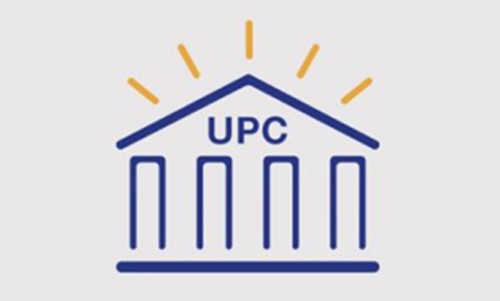Unified Patent Court - How It Will Resonate in Turkey?
The concept of the Unified Patent Court (“UPC”) entered the lives of European Patent holders with the UPC Agreement, an international agreement dated February 19, 2013. The system is intended to begin operation on June 01, 2023. The courts in question constitute a big and important step towards ensuring the unity of the judiciary for European Union member states. With the completion of the approval processes for 17 European Union members, a few days before the start of the transition period called the “sunrise period”, certain issues regarding the implementation of the system became apparent. There is also some uncertainty and hesitation around how the system will resonate with countries that are parties to the European Patent Convention (“EPC”) but not members of the European Union. In this article, the possible effects of this system in Turkey, which is within the EPC countries but outside the UPC system, will be examined.

As a non-European Union country that is a party to the EPC, Turkey is essentially in the same position as Norway and Switzerland when it comes to the UPC. Likewise, the post-Brexit UK has joined the list of countries that are party to the EPC but not the UPC. It is not clear that the UPC system will directly affect these countries. As a matter of fact, European and national patent applications will continue to be made from these countries. In this respect, patent holders in countries that are not members of the European Union will also be able to include their European patents in the UPC system for UPC countries, or if they wish, they can keep their patents within the pre-existing European patent system with an opt-out procedure, and the national patent protection in their domestic jurisdictions. Today, considering the comprehensive jurisprudence database created by the EPO it appears that the UPC will benefit from the EPO case law until it forms its own established jurisprudence. In the same vein, the European intellectual property law circles anticipate that the UPC decisions may affect EPO case law.
Interestingly, there is no regulation that makes the appeal proceeding for a patent before the EPO a prejudicial matter to a revocation action before the UPC or vice versa.
It would not be wrong to say when it comes to invalidity proceedings against a European patent that the Turkish IP courts have started to reach a consensus on deeming the opposition and especially the appeal processes at the EPO a prejudicial matter before starting the examination phase in their own decisions. In this context, the courts tend to wait for the decision of the EPO in order avoid unnecessarily burdening the judicial system since a revocation decision by the EPC would directly impact the validation of a patent in Turkey. The Turkish IP courts will decide that a case is devoid of essence without further examination. If the EPO revokes a patent already reflected in the registry in Turkey. On the other hand, if the EPO decides to maintain the European patent as granted or after amendments or limitations, the Turkish court will begin its national examination and then decide on the validity or invalidity of the Turkish part of the patent. As it is seen, the EPO proceedings carry great consequence for the Turkish judiciary when it comes to European patents validated in Turkey.
Although the law is silent on this matter, the link between UPC proceedings and EPO evaluations may lead to Turkish proceedings being affected by decisions made by the UPC regarding the validity of a European patent included in the UPC system which also has validation in Turkey. Thus, considering that decisions to be made by the UPC are expected to be concluded faster than the EPO process, it is possible to make the following inference: decisions made by the UPC regarding the validity of a European patent included in the UPC system will set a precedent before the EPO, so UPC decisions will now in effect set a precedent for Turkish proceedings. This situation raises the possibility that Turkish judges may slightly change their practice when it comes to deeming matters prejudicial.
Namely, when a national invalidation action is filed in Turkey against a patent pending before the EPO, the local court will most likely decide to wait for the EPO process. If an invalidation action is also brought before the UPC at this time, the UPC decision will most probably be rendered before the EPO decision is made, as the UPC proceedings are expected to be far more expedient. A distinction is likely to be made at this point: If the UPC decides to invalidate the patent, we expect the Turkish court to wait for the EPO to confirm the decision. However, if the UPC decides to uphold the patent, might the Turkish court, awaiting the EPO’s confirmatory decision, decide not to wait and initiate national proceedings so as not to waste time?
The answer to this question will emerge depending on many factors, such as the emergent correlation between EPO decisions and UPC decisions, the speed at which UPC decisions are made, and the amount of UPC decisions the Turkish courts end up considering. We may say however that if the Turkish court decides to wait for the EPO’s decision, despite a decision rendered by the UPC regarding the same patent, it is inevitable that one of the parties will request the withdrawal of this decision to wait for EPO due to its position and strategies in the market, and this issue will have to be evaluated.
First published by ManagingIP in Mar 21, 2023.



